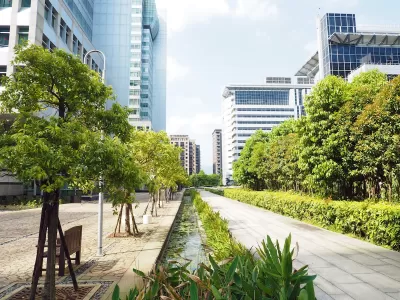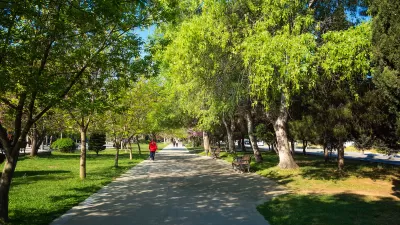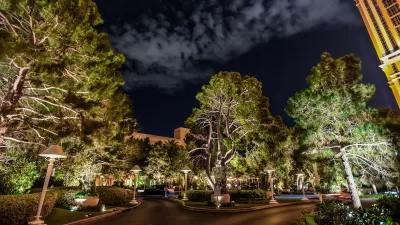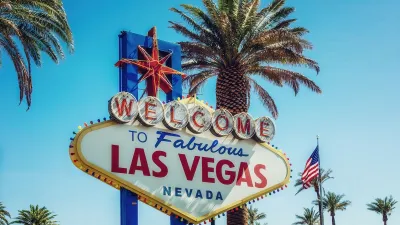Cities like Phoenix, Chicago, and Boise are prioritizing urban reforestation as critical green infrastructure to combat extreme heat, address environmental inequities, and foster community revitalization.

Cities across the U.S., including Phoenix, Chicago, and Boise, are embracing urban reforestation as a critical strategy to address urban heat, environmental inequities, and community revitalization. Phoenix, the first U.S. city to commit to full tree equity, recently launched its Shade Phoenix master plan, aiming to plant 27,000 trees and install 550 shade structures by 2030, backed by $60 million in public and private funding. Similarly, Chicago is working to bridge tree canopy disparities with its $46 million initiative to plant 75,000 trees over five years, while Boise’s City of Trees Challenge targets one tree for every household by 2030. These efforts demonstrate the growing recognition of trees as vital green infrastructure that provides environmental, social, and economic benefits.
Community engagement is central to these programs, with cities like Chicago forming tree equity working groups and involving diverse stakeholders to ensure that tree planting efforts address historical disinvestment in underserved neighborhoods. American Forests, a nonprofit advocating for tree equity, underscores the life-saving potential of urban trees, noting that low-income and majority-minority communities often face extreme heat due to lower tree canopy coverage. The Inflation Reduction Act has further bolstered these initiatives by directing $50 million to tree planting projects nationwide, enabling cities to integrate trees into urban planning as essential infrastructure alongside roads and utilities.
These ambitious programs highlight the long-term value of strategic urban reforestation, not just in mitigating climate challenges but also in enhancing public health, property values, and livability. By focusing on equity and sustainability, cities are creating cooler, healthier environments while fostering trust and participation among community members. As urban areas continue to adapt to extreme heat and climate change, leaders are increasingly treating trees as indispensable assets, planting the seeds for a greener, more resilient future.
FULL STORY: Growing equity from the ground up with municipal tree-planting

Alabama: Trump Terminates Settlements for Black Communities Harmed By Raw Sewage
Trump deemed the landmark civil rights agreement “illegal DEI and environmental justice policy.”

Planetizen Federal Action Tracker
A weekly monitor of how Trump’s orders and actions are impacting planners and planning in America.

Why Should We Subsidize Public Transportation?
Many public transit agencies face financial stress due to rising costs, declining fare revenue, and declining subsidies. Transit advocates must provide a strong business case for increasing public transit funding.

Understanding Road Diets
An explainer from Momentum highlights the advantages of reducing vehicle lanes in favor of more bike, transit, and pedestrian infrastructure.

New California Law Regulates Warehouse Pollution
A new law tightens building and emissions regulations for large distribution warehouses to mitigate air pollution and traffic in surrounding communities.

Phoenix Announces Opening Date for Light Rail Extension
The South Central extension will connect South Phoenix to downtown and other major hubs starting on June 7.
Urban Design for Planners 1: Software Tools
This six-course series explores essential urban design concepts using open source software and equips planners with the tools they need to participate fully in the urban design process.
Planning for Universal Design
Learn the tools for implementing Universal Design in planning regulations.
Caltrans
Smith Gee Studio
Institute for Housing and Urban Development Studies (IHS)
City of Grandview
Harvard GSD Executive Education
Toledo-Lucas County Plan Commissions
Salt Lake City
NYU Wagner Graduate School of Public Service





























